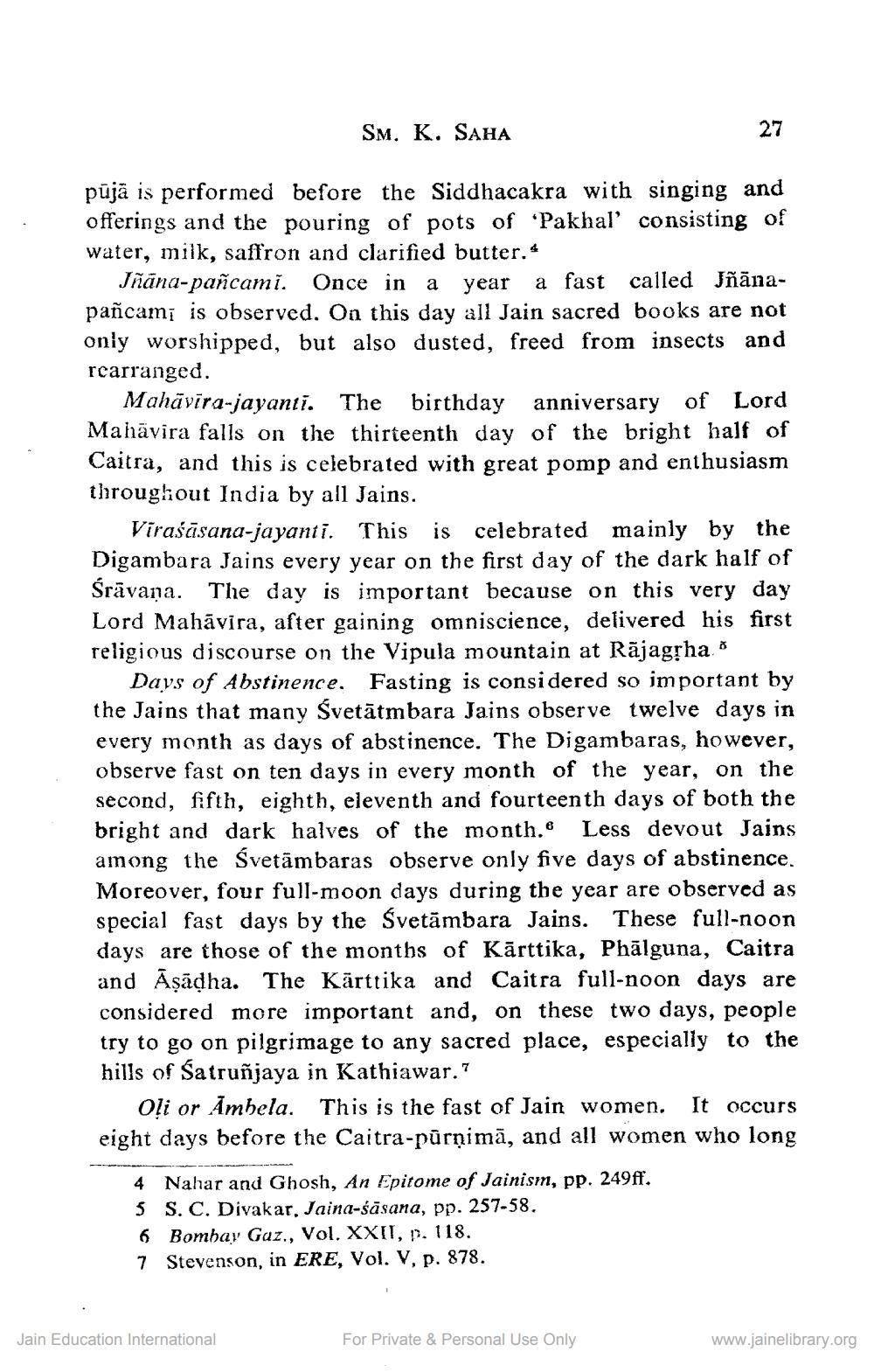________________
SM. K. SAHA
27
pūjā is performed before the Siddhacakra with singing and offerings and the pouring of pots of 'Pakhal' consisting of water, milk, saffron and clarified butter.
Jñāna-pañcami. Once in a year a fast called Jñānapañcami is observed. On this day all Jain sacred books are not only worshipped, but also dusted, freed from insects and rearranged.
Mahāvīra-jayanti. The birthday anniversary of Lord Mahāvira falls on the thirteenth day of the bright half of Caitra, and this is celebrated with great pomp and enthusiasm throughout India by all Jains.
Viraśāsana-jayanti. This is celebrated mainly by the Digambara Jains every year on the first day of the dark half of Śrāvana. The day is important because on this very day Lord Mahāvira, after gaining omniscience, delivered his first religious discourse on the Vipula mountain at Rājagļha.:
Days of Abstinence. Fasting is considered so important by the Jains that many Svetātmbara Jains observe twelve days in every month as days of abstinence. The Digambaras, however, observe fast on ten days in every month of the year, on the second, fifth, eighth, eleventh and fourteenth days of both the bright and dark halves of the month. Less devout Jains among the Svetāmbaras observe only five days of abstinence. Moreover, four full-moon days during the year are observed as special fast days by the Svetāmbara Jains. These full-noon days are those of the months of Kārttika, Phālguna, Caitra
d Āsādha. The Kärttika and Caitra full-noon days are considered more important and, on these two days, people try to go on pilgrimage to any sacred place, especially to the hills of Satruñjaya in Kathiawar.?
Oļi or Ambela. This is the fast of Jain women. It occurs eight days before the Caitra-pārņimā, and all women who long
4 Nahar and Ghosh, An Epitome of Jainism, pp. 249ff. 5 S. C. Divakar. Jaina-śāsana, pp. 257-58. 6 Bombay Gaz., Vol. XXII, p. 118. 7 Stevenson, in ERE, Vol. V, p. 878.
Jain Education International
For Private & Personal Use Only
www.jainelibrary.org




